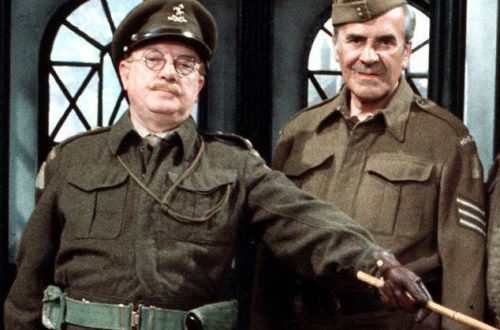The British Trades Union Congress general council voted last week to “support a boycott (where trade union members should not put their own jobs at risk by refusing to deal with such products) of those goods and agricultural products that originate in [Israeli] illegal settlements – through developing an effective, targeted consumer-led boycott campaign working closely with the Palestine Solidarity Campaign – and campaign for disinvestment by companies associated with the occupation as well as engaged in building the separation wall.”
Some Israel-bashers are unhappy that the TUC boycott is limited to “illegal settlements.” But isn’t this just a matter of interpretation? After all if you consider Israel a criminal enterprise and Zionism itself as illegitimate– as the TUC’s partner in boycotting, the PSC, apparently does— aren’t Tel Aviv and Haifa, and every other city, town, moshav and kibbutz in pre-1967 Israel, “illegal settlements”?
To the TUC’s credit, it specifically endorsed “a sovereign, independent, democratic contiguous and viable Palestinian state… living side by side with a secure Israel” and condemned rocket attacks from Gaza aimed at Israeli civilians. It also endorsed the ongoing cooperation between the Israeli trade union federation the Histadrut and the Palestinian General Federation of Trade Unions.
Will the TUC’s endorsement of a two-state solution and the PSC’s opposition to the “Zionist nature of the Israeli state” make it difficult, if not impossible, for them to work together? One can only hope so.
But the TUC puts almost all the blame for the continuing conflict on Israel. It condemns “Israeli military aggression” against Gaza and calls for an end to British arms sales to Israel. It condemns the Histadrut for daring to support last winter’s military operation against Hamas in Gaza– perhaps unaware that there are Histadrut members in Hamas rocket targets like Sderot and Ashkelon. (It’s also noteworthy that 20 percent of the Histadrut’s members are Israeli Arabs.)
The TUC approves a recent Histadrut resolution on peace and cooperation with the Palestinians; and it indeed is an excellent statement, in which the Israeli federation affirms its cooperation with the PGFTU and recognizes the difficulties that security checkpoints cause for Palestinian workers and their families:
We support the decision to remove security checkpoints in the context of the renewed security situation and we call upon the Israeli government to dismantle all illegal outposts.
Read it all (pdf).
The Histadrut, a genuinely free trade union, is frequently at odds (sometimes bitterly so) with the Israeli government. This is in marked contrast to the government-controlled Confederation of Cuban Workers (CTC)– the only legal “trade union” on the island. As far as I can tell, since the Revolution the CTC has never once called a strike. The International Trade Union Confederation reports:
There is no legislation covering the right to strike. According to the government there is no need to call strikes since the demands of official trade union organisations will always be heard by the authorities.
This may be why many American companies are eager to end the US embargo against Cuba. (I want to end it too, though for different reasons.)
So can anyone explain TUC chief Brendan Barber’s downright bizarre enthusiasm for solidarity with the CTC and the Cuban government (proclaimed on a visit to Cuba last spring) while ignoring Cuba’s imprisoned genuine trade unionists?
The American AFL-CIO has a more principled position.
Update: At the Communist Party of Britain’s Morning Star, the CPB’s John Haylett writes:
[I]t is important that the popular understanding will be that the TUC is in favour of a boycott of Israel and that Britain’s trade unionists are advocating membership of the Palestine Solidarity Campaign.
In other words, Haylett both assumes and hopes that ordinary people will misunderstand the exact nature of the TUC’s position. A Communist with a contemptuous attitude toward the masses? Must be a first.
(Hat tip: Shiraz Socialist)


